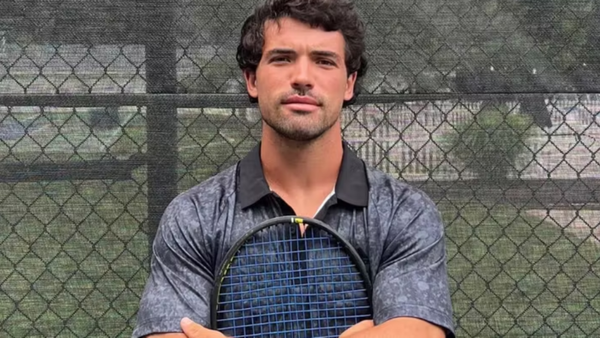When Mayor-Elect Brandon Johnson is sworn in next month, he will have no shortage of advisers — official, unofficial, and even unwanted — to help him enact his vision for the city.
In my experience, as I recounted in my book, “The Gumbo Coalition,” his best chance of success is to have that plan in place before he even utters the oath of office.
Less than a week after my inauguration as mayor of New Orleans, a wrenching tragedy struck the city. Nine-year-old James Darby, who days earlier had made national headlines with a letter to President Bill Clinton, pleading with him to “stop the killing,” lost his life to gun violence.
I’ll never forget receiving that telephone call from my police chief. Beyond the jolt of anger and sadness that struck me, I remember thinking, “ OK, Marc. You’re responsible for how the city handles this. You don’t have the luxury of being an observer watching court-side anymore. You’re on the court. In fact, you’re the captain of the team.”
For many, Darby’s death signaled the victory of senseless, status-quo crime that would dash any hope of change. My response had to be swift, bold and unapologetically brazen.
Like many cities in the 1990s, New Orleans was plagued with violent crime, and the murder rate was at an all-time high. Even worse, the city’s police force was so corrupt that officers both good and bad were seen as protectors of an irreparably broken system.
I had watched well-intentioned leaders fail because they lacked a clear vision or a plan to bring that vision to life. They were mired in minutiae, forever studying, researching and analyzing, yet never acting.
Unlikely inspiration
But I had embraced the value of a fast start paired with a solid plan long before I announced my candidacy. I took inspiration from an unlikely source: the 1971 “Fight of the Century” between Muhammad Ali and Joe Frazier.
When Ali was banned from boxing and stripped of his title for refusing to fight in Vietnam, Frazier emerged to take the heavyweight title. Many viewed Frazier’s title as illegitimate. With Ali reinstated, the “Fight of the Century” would settle the question.
Ali was known for his fast starts, which generally set the tone for victory. But an uncharacteristic and inexplicable slow start against Frazier at Madison Square Garden on March 8, 1971, led to Ali’s defeat
It was a lesson I took to heart. Whatever mistakes I was bound to make as a new mayor, failing to start fast with a solid plan would not be one of them.
My plan for attacking New Orleans’ crime malaise was to shake the very foundations of every part of the city impacted by or responsible for crime. I wanted no doubt in the minds of New Orleanians that a new day had dawned.
The plan was sweeping and bold: 200 officers transferred to the streets, a dusk-to-dawn youth curfew, an expansive summer jobs program and free summer day camps.
I had an all-star team assembled, but I had not yet found the most critical member — a police chief who shared my vision. Knowing this decision could not be rushed, I was resigned to rolling out my plan in stages. When I asked the current chief how long it would take to process the transfers, he responded “months.” I told him to have the paperwork on my desk within the week.
A swift plan paid dividends
Many scoffed when I announced the $1 million in funding for the summer jobs program would come from the police department’s bloated overtime fund. What they didn’t know was that a department representative was on record telling city council there was no way they could spend all that money. All the late nights I had put in watching public access broadcasts of city council meetings paid off.
As a civil rights lawyer, I had to make sure the curfew would not be harsh or discriminatory. Before any announcements were made, we worked closely with community, faith and grassroots leaders. We promised that curfew violations would not go on criminal records, and that curfew-breakers would go to a community center, rather than a jail.
Every aspect of our community safety plan required and was improved by the alignment of the people and resources necessary for success — the coalition we created.
Fast forward five years later, and our plan paid enormous dividends, as violent crime had dropped by more than 50% and New Orleans was heralded as a national leader in police reform. We replicated this approach on housing, infrastructure development and government reform. For me, my long-standing relationship with the grassroots leaders — the roux of the gumbo — was the linchpin in developing broad-based support.
Marc H. Morial is president and CEO of the National Urban League. He served as mayor of New Orleans from 1994 to 2002 and is a graduate of the University of Pennsylvania and the Georgetown University Law Center.
The Sun-Times welcomes letters to the editor and op-eds. See our guidelines.







